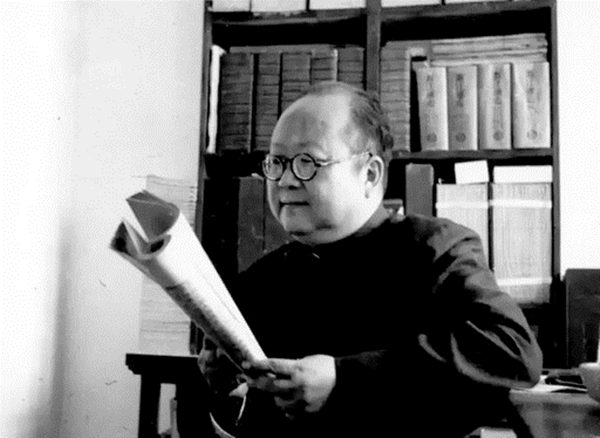


Pan Guangdan and his academic life

FILE PHOTO: Pan Guangdan is widely recognized as China’s pioneering sociobiologist.
Pan Guangdan was born on August 13, 1899, in Baoshan County, Jiangsu Province. In 1913, at the age of just 14, he enrolled in Tsinghua School in Beijing. During his second year there, he suffered an unfortunate leg injury while participating in a high jump competition, leading to an infection that ultimately necessitated amputation. Despite facing physical disability, Pan quickly adjusted his mindset and faced life with courage, openly acknowledging his condition. Professor Mei Yibao recalled, “When I entered Tsinghua in 1915, the first time I saw him, he was already an amputee. He had tried using a prosthetic leg but found crutches more convenient, so he chose to use them instead. Although he had only one leg, he was as agile as anyone else. He never missed a weekend outing with classmates.”
Scholarship in multiple fields
Pan made groundbreaking contributions in several academic fields and is regarded as one of the founders of modern sociology, ethnology, eugenics, and sexual psychology in China. Some refer to him as a sociologist because he served as the head of the School of Social Sciences at Tsinghua University; others call him a psychologist due to his translation of Havelock Ellis’s seminal work Psychology of Sex; still others consider him an ethnologist based on his significant ethnological studies in his later years. However, Pan primarily identified himself as a eugenicist, with the other titles stemming from that identity. Today, he is widely recognized as China’s first sociobiologist.
From 1922 to 1926, Pan studied in the United States for four years, earning both an undergraduate and a master’s degrees in zoology, paleontology, and genetics. He studied under the geneticist Thomas Hunt Morgan, who was awarded the Nobel Prize in Physiology or Medicine in 1933, and was a leading figure in the biological sciences at that time. However, Pan focused his studies on humans rather than animals. In Western academia during that era, eugenics was an applied branch of biology, primarily studying humans, which aligned with Pan’s academic interests. The Eugenics Record Office was a major center for eugenics research in the U.S., where Pan received systematic training in eugenics that greatly influenced his subsequent academic career.
There has been considerable debate regarding the evaluation of Pan’s research in eugenics. Proponents of extreme environmentalism criticize eugenics as “pseudoscience,” while supporters argue that Pan did not blindly follow Western pioneers but instead pragmatically assessed the role of eugenics, aiming to guide population development through choices in marriage and reproduction. He firmly rejected the racist and exaggerated genetic theories prevalent in Western eugenics, critically adopting the concept of “social selection” and hoping to use reproductive choices to promote population health, a viewpoint considered practical by many scholars. As an applied science, the theoretical foundation of eugenics lies in sociobiology, and Pan’s contributions are more in elucidating theory rather than formulating eugenic policies, making him more appropriately regarded as a sociobiologist.
Sociobiology involves using biological theories to study social phenomena, or as Pan put it, “observing culture from a biological standpoint.” While modern sociobiology studies social animals (such as ants), Pan’s focus was primarily on humans. As early as his time studying in the U.S., he referred to his research paradigm as “sociobiological.” The term “sociobiology” was first introduced by animal behaviorist John Paul Scott in the late 1940s, yet Pan had been using this term more than 20 years earlier.
In Pan’s view, human behavior, like that of other animals, is partly influenced by genetic factors shaped by natural selection. In his 1940s work Principles of Eugenics, he mentions evolutionary differences between humans on the Eurasian continent and those in the Americas which led to differing immune responses to pathogens, which contributed to the high mortality of Native Americans following European contact. This perspective was widely popularized in the academic community after the publication of Jared Diamond’s Guns, Germs, and Steel in the late 1990s.
Pioneering research in sociobiology
As China’s first sociobiologist, Pan analyzed and assessed Chinese history through the principles of sociobiology, particularly in relation to Confucian culture and systems, which is regarded as one of his greatest academic achievements. He pioneered the research paradigm of sociobiology in China, incorporating Darwinian ideas and methods, and was at the forefront of international scholarship in this field. In his writings, Pan explored not only the influence of culture on human evolution but also the evolution and selection processes of culture itself, as well as the co-evolution of culture and biology, including his sociobiological analyses of Eastern and Western religions. When the book The Fire of Prometheus, which introduces the principles of sociobiology, was translated into Chinese in 1990, many had already forgotten that someone had brought this “fire” back to China during the Republican period.
After World War II, human behavior increasingly came to be seen as a social phenomenon rather than a biological one. Today, sociologists rarely engage with biological theories and have even moved towards postmodernism or extreme relativism, which British scholar Peter Dickens refers to as “excessive sociologization.” Pan’s warnings remain relevant.
With the rapid advancement of biotechnology, humanity now possesses the means to directly influence genetic mechanisms themselves, raising increasing attention to related technological and ethical issues. Pan’s academic thoughts deserve greater recognition, and his pioneering research paradigm should continue to be developed to address the current social sciences’ neglect of human biological aspects.
Editor:Yu Hui
Copyright©2023 CSSN All Rights Reserved